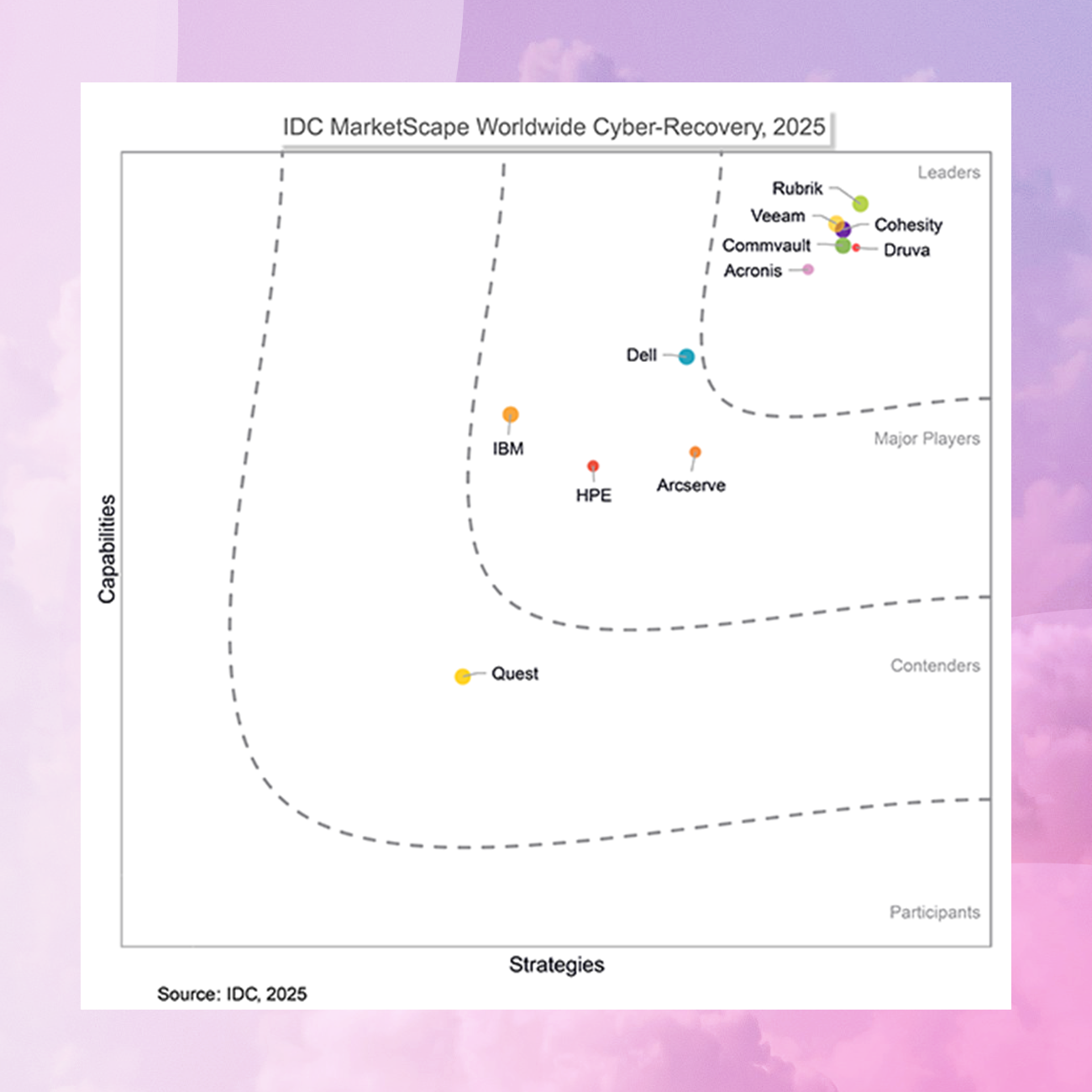Know, Protect, and Control Your Most Critical Asset—Data
Your data powers everything you do. Commvault Cloud helps protect it with discovery, protection, and unified control.

Data & AI Security
Knowledge (about your data) is power
Commvault Cloud makes it easy for you to know what data you have, where it lives, who (and what) has access to it, and how it’s controlled.
Data discovery
Easily uncover where sensitive data lives within your organization, including personally identifiable information (PII), health care data (PHI), or sensitive company or technology secrets (such as API keys).
Control access by humans and AI
Intelligently apply policies that allow or restrict access to data for both human users and AI to sensitive data based on privacy, security, or other access control policies.
Enable responsible use of data & AI
Monitor sensitive data used by people or by AI models for training based on user roles and access policies.
Understand your Data
Data discovery
The foundation of data security relies on a solid understanding of what data you have and its sensitivity to apply downstream controls and appropriate monitoring.

Broad coverage of data formats
Discover data in structured, semi-structured, and unstructured formats in on-prem and cloud environments.
Deep data inspection
From metadata to actual file contents, Commvault Cloud Risk Analysis can enable visibility into your sensitive data by inspecting metadata and the underlying data itself.
Automatic scanning & discovery
Commvault Cloud Risk Analysis can automatically scan and discover data in both live and backup environments across files, objects, fileshares, databases, and more.
Organize and Tag Your Data
Data classification
With pre-built and custom classifications, Commvault Cloud makes it easy to understand, organize, tag, and report on your data.

Automated tagging
Commvault Cloud automatically tags data with machine learning-based tagging with more than 100 pre-built classifiers, including PII, financial data, API keys, and secrets.
Custom classifiers
If you don’t see what you need, you can build your own classification with simple regular expressions (RegEx).
Data dashboards & reporting
Commvault Cloud Risk Analysis enables visibility into where your sensitive data lives in your organization, the volume, types, and riskiness of data, and even a project-based view to understand remediation activity for specific data initiatives.
Control Your Data
Data & AI access governance
Using an understanding of sensitive data in your environment, Commvault Cloud can help apply access policies to allow or restrict access and sharing of data to help reduce risk and data misuse.

Help enable responsible use
Apply policies based on data classification or sensitivity that help restrict access or sharing to help prevent data leakage.
Remediate overly permissive access
Sensitive data should be shared only with intention, so Commvault Cloud helps highlight data that is shared broadly so your security teams can rein in permissions.
Guardrails, not roadblocks
Enable sensitive data use with protection measures and privacy controls such as data masking and redaction.
Analyst Report
IDC MarketScape: Worldwide Cyber-Recovery 2025 Vendor Assessment
Commvault was recognized for strengths in cyber recovery architecture, workload and platform breadth, security ecosystem integration and dedicated cyber-resilience training.

Our Reach
Supporting more than 100,000 companies
eBook
Cyber Resilience Handbook
Explore how Commvault Cloud’s discovery, classification, and control capabilities can help enable cyber resilience alongside many other platform features, like Unified Data Protection and Cleanroom Recovery.


Cyber-Resilience Imperatives: Active Defense and Bulletproof Recovery

Commvault Cloud Risk Analysis

Research: Cyber Readiness Report
Frequently Asked Questions
Why is data discovery needed for cyber resilience?
Effective data discovery is the foundation of cyber resilience, providing organizations with the critical visibility needed to safeguard their most valuable assets. Without a comprehensive understanding of their data landscape – including what data exists, where it’s stored, and how it’s utilized – organizations are left vulnerable to cyber threats and unable to respond effectively in the event of a breach. By prioritizing data discovery, organizations are better equipped to protect, recover, and govern their data.
How does data classification help improve data security?
Data classification allows you to focus protection efforts where they matter most, rather than applying blanket policies across all data. For example, categorizing data based on content, context, and metadata, like PII, PHI, PCI, or intellectual property, allows you to implement controls on only that type of data.
What do data discovery and security have to do with responsible AI use?
AI models are only as effective as the data they’re trained on.
Data discovery helps organizations understand their data across environments before it ever reaches an AI pipeline. If AI models learn from sensitive information, such as PII, PHI, or confidential business data, it’s possible they may return that data as a response to a prompt. Appropriately classified data can help prevent sensitive “shadow data” from being unknowingly used in training or inference, and this helps AI architects use only trusted and appropriate data for their AI systems.
Get Started
Try Commvault Cloud today
Cyber resilience for the cloud-first enterprise, with the first platform built to enable continuous business.








